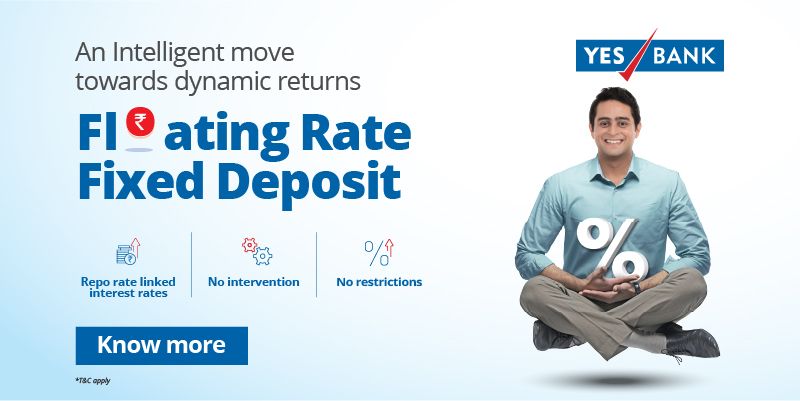Difference Between Fixed Deposit And Real Estate Investment In India
The investment objective of someone who believes in fixed deposits is to get sure returns. Regardless of low-interest rates, this investor is one, with a very low-risk appetite, afraid to lose hard-earned funds and rightly so.
The cautious low-risk investor is risk hesitant and afraid of high-risk volatile investments. However, low to moderate-risk investments like real estate, may attract some interest. Here is an interesting comparative analysis between real estate investment and a fixed deposit.
Fixed Deposits (FDs)
You can invest a sum of money in a bank or NBFC for a term growth period. The deposit grows with the interest offered by the financial institutions at a fixed rate over the term. FDs fetch better interest than savings accounts. These are directly governed by the RBI and can be from standards, tax saving, special, corporate, regular, senior citizens and Flexi types. There are predominantly two types of FD deposits in India, cumulative and non-cumulative deposits. In cumulative deposit, the interest is paid upon maturity along with the principal sum. Non-cumulative deposits are paid every quarter or if paid monthly, they are at a discounted rate. Non-cumulative FDs allow you to avail the interest rate on a monthly, quarterly, half-yearly or yearly pay-out. The rate of interest is the same in cumulative FDs, with interest compounded after every quarter.

While fixed deposit is a popular investment tool, you should know FD interest rates depend on factors like tenure, renewals, age, and market conditions. So, if the bank offers 7% interest and the market inflation is 8%, real returns on investment can be negative. You will be taxed on your holding if the period is over a year on gains of more than a lakh with taxable interest on your current tax slab. The higher your income, the lower will be the FD return.
Corporate FDs
These are also high-risk fixed duration investments and come with a prescribed rate of interest. This type of fixed deposit is offered by financial institutions and Non-Banking Financial companies (NBFC). The return on investment is much higher if you are investing with the right financial body.
Real Estate Investment
People invest in at least one property just like they invest in at least one or more fixed deposits, as being a dependable saving instrument for generations. If you had acres of land and more than one house, you were considered wealthy. Today if you own a commercial property, the rents earn passive income giving you financial freedom. Real estate is a potentially high-value, high-risk investment and surely not for everyone.
Property values and liquidity are based on factors like position, locality, and connectivity. Brokerage eats into the profit margin when you are selling. Maintenance costs, illegal encroachment and other factors can keep the property owners on the edge.
Commercial Real Estate Fractional Investment
A new concept of fractional investment is a way in which the small investor can own real estate. Top real estate developers like Strata, hBits, PropertyShare, bhive, etc., are inviting investments from individuals on pre-leased Grade A commercial properties. These companies create platforms called Special Purpose Vehicles (SPV) for every commercial property. Funds equivalent to the value of the property are pooled by the SPV based on the listing. Once the funds are collected in an escrow account, the money is released to the seller. The property registration is done between the seller and the SPV, making each investor a shareholder. The investments are RERA registered. Individuals can earn high quarterly rentals, with a rental yield of 10% on an average investment of ?25 lakh.
Grip has further fractionalised this investment model by partnering with an SPV platform where investors can access the same opportunities available on the CRE platform by decreasing the investment size to ?1 lakh. Investors earn quarterly rentals up to 11% yield. The CRE platforms arrange the accounting, maintenance, reporting and other operational responsibilities.
To Conclude
Traditionally real estate investment may be high worth the high-value investment with uncertainties, the fractional investment model through Grip makes it affordable for the small buyer. Real estate investment is a low to moderately risky investment, but with risk mitigating practices from top CREs, investors can invest in fully audited properties. So, if you are debating between real estate investment or fixed deposits, FDs come at low risk and low returns, while fractional commercial real estate investments offer low risk and high returns. Visit the Grip platform and read about CRE investment in detail. Grow your funds smartly with informed investing.







